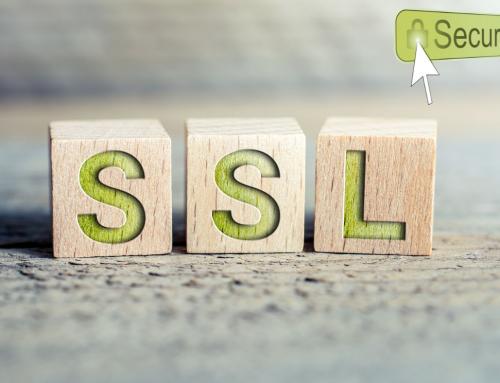A couple weeks ago, I wrote about some tips on how to make the most out of working from home for the first time. Last week I wrote about Office 365 and how it can work for remote workers. This time I wanted to write about some other tools that can help smooth things over and keep you productive while you’re working from home.
This list is based on my own personal experience as a remote worker, so it will focus on tools I use personally but also some tools that I use at Blacknight, that we also happen to offer to our customers
Office 365 Suite
This is the big one. If you’re contemplating working with a remote team for the first time, Office 365 is basically the most “out of the box” solution you can get on the market. Not only does it have the basic stuff like email and calendaring, but it has Teams. Teams is a great tool for managing remote workers (and in your own office too). It has a chat function, group function, ability to share files, etc. It’s an incredibly useful tool. You can even use it for audio and video calls with your team. It also has ToDo, which is a pretty great todo list app. That’s on top of the standard suite of apps like Word, Powerpoint, Outlook, Excel, etc., which you can download or work with on the web (and your team can decide which work best for them). Blacknight offers several plans depending on the size of your team. And when you work with our sales team, we can help you get everything set up (when you do this through Microsoft, you don’t get that kind of support). Read more about using Office 365 here.
Slack
Slack is another collaboration tool that is really popular right now. In fact, Blacknight uses it for its internal communications currently. It set the standard that other services like Microsoft copied. It allows you to have separate channels for each team in your company. You can create secret ones or public ones. You can have private chats with co-workers. It’s an all-around great tool for collaborating with your co-workers. It’s nerdy to say, but I quite enjoy working with it myself. It’s searchable, secure, and flexible. You can upload files internally and link it to external apps as well – you can even have a bot that does things automatically (for example, we have a bot to remind us to order our Blacknight provided lunch). And like MS Teams, it also has calling and videoconferencing functions.
Skype
Another software used by many is Skype, who practically invented private videoconferencing. It’s used less and less these days, but many people still use it for one-off calls or chats when they need to talk to someone outside their corporate intranets. It’s great for conference calls and webinars. One of the most useful features is that Skype lets you buy a personal phone number that anyone can call like a regular phone. For example, in my personal business, I have a US and UK phone number so when people call me, it’s like a local call.
Basecamp
This is one of my favourite online tools. I use it for my personal business and projects. Basecamp is basically a project management tool. It contains everything you need to manage a project of any size. It has chat; it has todo lists, it has a message board, it has file management, milestones and a calendar (with reminders). It’s really easy to use and setup. Best of all, they now offer a free plan to get started on your personal projects. I pay for the business plan, which is $99 a month and it’s worth every penny. I collaborate with several writers in different countries, so I set up one for each one I work with. Then we can all keep track of upcoming articles, projects and chat about anything relevant, all within the app. It’s such an incredibly simple and useful tool.
Bear
I do a lot of writing – for my job with Blacknight and for my own projects. I like to write in a beautiful environment – I know it’s silly, but it helps with the creative flow. That’s why I use Bear for my notes and writing. It syncs with all my computers and devices using iCloud, so my stuff is everywhere. It’s lightweight and fast. I used to use Evernote for everything, but it became too bloated and slow (writing long articles became a chore). You can customize the interface, tag things, search for things, etc. You can link it to a browser to easily save things as new notes. Notes are encrypted end-to-end. It also has a handy todo list function, which I use to manage my daily todo list. It’s $15 a year and very much worth it.
VPNs
A critical tool for your remote team is a VPN or virtual private network. You can easily set up your own VPN with OpenVPN or use a third-party provider. This allows employees outside your company Intranet to appear to be on it, so they can access internal tools that are only available when they’re on your network. Whether it’s sharing large files, accessing tools, or using shared software, a VPN is a secure way to make sure your important corporate data stays private. Think of a VPN like a private tunnel between your employee’s house and your head office. No one can penetrate it, and all your data is compliant with your corporate security policies.
Dropbox
I’ve used Dropbox for over a decade and couldn’t live without it. For those not familiar with it, it’s a tool that lets you sync files across multiple computers like they’re just a folder on your hard drive. It’s perfect for having important files in the cloud and easily shareable with others. For example, when I work on my own print magazine, I keep the files stored on Dropbox, so I can work on it anywhere. Then when I need to share it with the printer, I just give them the Dropbox link. It’s one of those things that just works.
Backing Up
When you work remotely, it’s important to have a strong backup strategy. We’ve all had a dead hard drive at one point (yes, even on my beloved Mac). You have to be ready. I follow a two-pronged backup strategy. I keep an external hard drive on my desk and keep a Mac Time Machine backup there. Then I use a service called Backblaze that basically uploads my entire hard drive into the cloud, and keeps it updated every day (it costs $6 a month). I’ve used it for years. Once you set it up, you don’t have to think about it. When my Mac’s hard drive died last year, I was able to order a clone of my hard drive from Backblaze, and everything was safe. If you want something a little more powerful, then you can’t go wrong with Acronis Cloud, which is offered by Blacknight. This enterprise-level backup solution ensures that your most important data is safe in a data centre and easily accessible, but also encrypted so that only you can access it.
A Dedicated Server Lets You Host Any Tool You Need
I’m a little biased on this, as I recently got my own dedicated server for my own business purposes (I’ll be writing more about this in the coming weeks). But a dedicated server from Blacknight can fill in a lot of the holes in software that you need. Best of all, you host them yourself, that data is yours, and you can keep the server completely secure to your team only. You can host files, important software and the tools you need to operate. Whether you need web-based software (like WordPress or a project manager), or rock-solid email, or just a fast connection to do your work, a dedicated server with Blacknight can solve any IT related problem you have with a remote working team. Get in touch with our sales team today to customise your solution.
Move Onsite Servers to a Data Centre
Many large enterprises will have a dedicated server on-site to use many tools and operate their intranet. Many have them in a closet in the office. Well, what if no one is in the office for an extended period of time? Servers go down, and internet connections can go down. We recommend moving the servers you need to operate and co-locate them in one of our data centres. This puts your important, mission-critical infrastructure into an environment designed to keep it up 99.99% of the time. You’ll have rock-solid infrastructure backing you up, including the fastest internet connections in Ireland, an on-call emergency response team, and the latest tech to keep you operating. Talk to our sales specialists today to figure out what you need.
What tools do you use as a remote worker? Let us know in the comments below!
2 Comments
Comments are closed.







Thank you Jonathan. Lots of good tips here – and all beautifully written!
Thank you! That’s very kind!